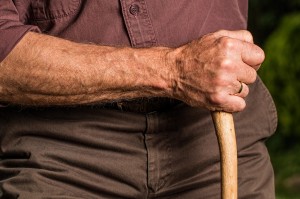Dental Care Tips for Caregivers of the Disabled or Elderly
 Caregiving for a Disabled or Elderly Loved One
Caregiving for a Disabled or Elderly Loved One
You may have an elderly parent, spouse or friend who has difficulty maintaining a healthy mouth on their own. How can you help? Two things are critical:
- Help them keep their mouth clean with reminders to brush and floss daily.
- Make sure they get to a dentist regularly.
These steps can prevent many problems, but tasks that once seemed so simple can become very challenging. If your loved one is having difficulty with brushing and flossing, talk to a dentist or hygienist who can provide helpful tips or a different approach. There are dentists who specialize in caring for the elderly and disabled. You can locate a specialist through the Special Care Dentistry Association’s referral directory. For those who wear dentures, pay close attention to their eating habits. If they’re having difficulty eating or are not eating as much as usual, denture problems could be the cause.
When you’re caring for someone who is confined to bed, they may have so many health problems that it’s easy to forget about oral health. However, it’s still very important because bacteria from the mouth can be inhaled into the lungs and cause pneumonia.
If you are a representative for a nursing home resident who needs dental care and is enrolled in Medicaid, there is a regulation, called an Incurred Medical Expense, that may help pay for medically necessary care as determined by a dentist. The Medicaid caseworker at the nursing facility and the dentist providing care can work together to apply the Incurred Medical Expense to pay for needed dental benefits.
